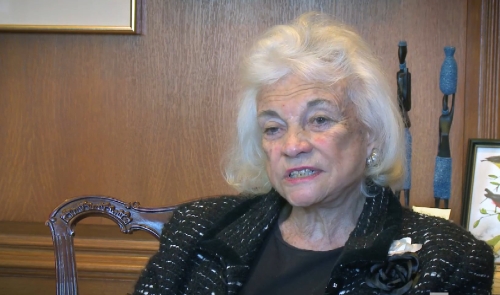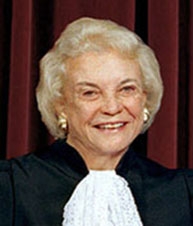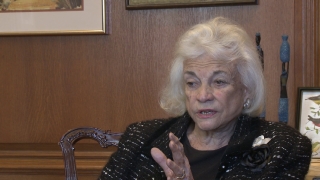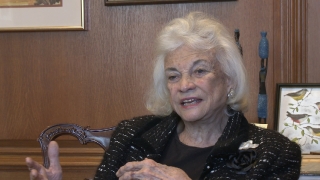Justice Sandra Day O'Connor
Associate Justice, Supreme Court of the United States

Watch the full video or read the transcript (PDF: 245.83 KB).
Biography
Sandra Day O’Connor (1930-2023), Associate Justice, Supreme Court of the United States, was born in El Paso, Texas, March 26, 1930. She married John Jay O’Connor III in 1952 and has three sons—Scott, Brian, and Jay. She received her BA and LLB from Stanford University. She served as deputy county attorney of San Mateo County, California, from 1952 to 1953 and as a civilian attorney for Quartermaster Market Center, Frankfurt, Germany, from 1954 to 1957. From 1958 to 1960, she practiced law in Maryvale, Arizona, and served as assistant attorney general of Arizona from 1965 to 1969. She was appointed to the Arizona State Senate in 1969, and was subsequently reelected to two two-year terms. In 1975, she was elected judge of the Maricopa County Superior Court and served until 1979, when she was appointed to the Arizona Court of Appeals. President Reagan nominated her as an Associate Justice of the Supreme Court, and she took her seat September 25, 1981. Justice O’Connor retired from the Supreme Court on January 31, 2006. Justice O’Connor passed away in December 1, 2023 at the age of 93.
Video Excerpts
On ruling narrowly
On working with her clerks
All rights in these oral history interviews belong to New York University. Quoting or excerpting of oral history interviews is permitted as long as the quotation or excerpt is limited to fair use as defined by law. Quotations and excerpts must cite and give proper credit to: IJA Oral History of Distinguished American Judges, Institute of Judicial Administration, NYU School of Law. For quotations or excerpts that exceed fair use, permission must be obtained from the Institute of Judicial Administration. Any permission granted will comply with agreements made with the interviewees and/or interviewers who participated in the oral history project. The transcript shall control over the video for any permitted use.





